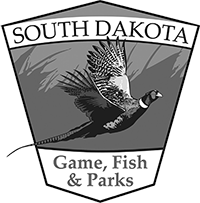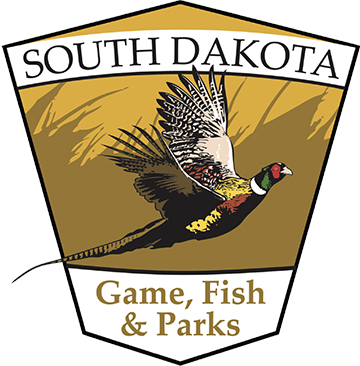Open Waters Compromise
The Open Waters Compromise (HB 1001) was signed into law by Gov. Dennis Daugaard on the evening of June 12, 2017, after a special session was held. The bill immediately reopened 27 bodies of water to the public while also providing landowners with the ability to post and close certain areas of nonmeandered waters. An amendment to the bill “sunsets” the legislation on June 30, 2018.
As of June 13, 2017, GFP removed all cables that previously restricted access to 27 nonmeandered lakes. Full services were also restored at those access sites.
Contact Information
-
Individual Landowners
Rhet Russell at Rhet.Russell@state.sd.us or 605.882.5200. -
Sportsman, Conservation or Landowner Groups
Arden Petersen at Arden.Petersen@state.sd.us or 605.362.2722.
Kevin Robling at Kevin.Robling@state.sd.us or 605.394.1752. - Media Inquiries
Emily Kiel at Emily.Kiel@state.sd.us.
Recreation and Respect
The Open Waters Compromise strikes a balance between the public’s interest in recreation and respect for private property rights. The bill that passed was crafted by sportsmen and women, landowners, attorneys and policy experts.
Default Rule:: Open Unless Posted
The bill opens all nonmeandered waters to recreation unless marked by the owner of the property underlying the water.
- Open by Agreement. Authorizes agreements between the state and landowners to open nonmeandered waters that are marked closed. No agreement may exceed a term of 10 years.
- Open with Permission. Marked areas are open to recreational use with permission from the owner of the property underlying the water.
The allowed recreational use of an open nonmeandered body of water does not include wading, standing or operating a motor vehicle on the bed of a nonmeandered body of water without permission from the landowner. Trapping and hunting on the frozen surface above private property also requires permission from the landowner.
Posting and Marking Requirements
A private property owner must notify the South Dakota Game, Fish and Parks when posting any nonmeandered body of water overlying private property as closed. Landowners must install signs provided by the department or buoys, to identify the area of nonmeandered water that is not open to recreational use without permission. Learn more about these marking requirements.
No Access Fees
Per statute, landowners cannot charge a fee for fishing nonmeandered waters that are marked as closed. Violations related to charging for fishing closed waters will be investigated by law enforcement. Fees may only be charged for fishing waters that are not marked as closed; such as a private boat ramp on an open water, a boat ramp located within the boundaries of a state park or recreation area and even some lakeside use areas along the Missouri River
Right-of-Way
Nonmeandered water over a road right-of-way is open to recreational use and cannot be closed by marking.
The law now specifically prohibits "recreational use" of marked (closed) waters. Casting a lure into marked (closed) waters is a recreational use of those waters and is a violation of SDCL 41-23-5.
Any contact between recreational equipment and private property underlying any unmarked (open) nonmeandered lake incidental to a lawful recreational use is not a criminal trespass. Casting into unmarked (open) water from a legal point of access is legal.
Rules and Petition Process
The Legislature gave the GFP Commission the authority to decide on requests to restrict nonmeandered lakes. The process being considered by the Commission will give landowners who own land on one of the 27 Section 8 lakes the ability to formally make those requests.
Petitioning landowners must first complete and submit the petition form.
Upon submission of the form, the Commission will schedule and post a hearing date based on the availability of the landowner and the Commission. The hearing agenda will be publicly posted and the hearing will be open to the public.
Following the hearing, the Commission will adopt a resolution that grants the petition in part or full, or denies the petition stating its reasons for partial or complete denial. State law requires the Commission to consider privacy, safety and substantially affected financial interests of the landowner as well as history of use, water quality and quantity and the public’s interest in recreational use of the water.
Final adoption of the petition process rule will be considered at the Commission meeting in September, after which they will then accept and consider petitions for closing waters to public access.

